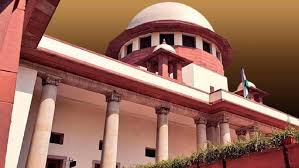RFL filed a commercial suit[(Comm.) No. 940/2018.] seeking to recover Rs. 791 Crores from (the erstwhile) Laxmi Vilas Bank (hereafter “LVB”). The claim was based on the allegations that LVB misappropriated Fixed Deposits (“FDs”) furnished as security by RFL and its group companies, namely RHC Holding Pvt. Ltd. (hereafter “RHC Holding”) and Ranchem Pvt. Ltd. (hereafter “Ranchem”), to secure short-term loans. (Para 2)
Under Sections 409 and 120B of the Indian Penal Code, 1860 (IPC) (Para 3)
The contents of the FIR alleged that RFL had placed four FDs with a combined value of Rs. 750 Crores as security for short-term loans. LVB extended loans to RHC Holding and Ranchem, utilizing these FDs as security. When RHC Holding and Ranchem defaulted on their loan payments, LVB debited an amount of Rs. 723.71 crores from RFL’s current account without obtaining proper authorization or prior notice. (Para 3)
In this way, LVB revoked the FDs worth Rs. 729 Crores and also benefited by earning Rs. 115 crores, in interest. It was alleged that the parties involved acted in connivance with each other and committed acts of commission and omission in furtherance of the conspiracy to cheat the complainant company. (Para 8)
Additionally, Clause 3(3) of the Amalgamation scheme provides for the institution of criminal proceedings against officials of LVB and therefore, liability should not be attributed to the rescuer bank. (Para 9)
The court directed the involved parties to seek clarification regarding the interpretation of Clause 3(3) of the scheme in respect of criminal proceedings constituted against transferor bank if be carried forward to transferee bank or not after the amalgamation from RBI. Additionally, the court stayed the summoning order issued on February 16, 2021, against DBS Bank till clarification was issued by RBI. DBS appeals to this court (Para 10)
To permit prosecution of DBS for the acts of LVB officials (who are in fact, facing criminal charges) would result in travesty of justice. Therefore, the pending criminal proceedings (arising out of FIR – 189/2019 registered at P.S. Economic Affairs Wing, New Delhi), to the extent it involves DBS, which was the subject matter of the impugned judgment and all consequent proceedings arising therefrom (to the extent of involvement of DBS), are hereby quashed. (Para 34)
SUPREME COURT OF INDIA
2023 STPL(Web) 260 SC
[2023 INSC 819]
Religare Finvest Limited Vs. State Of Nct Of Delhi & Anr.
Criminal Appeal No(S). 2242 of 2023 With Criminal Appeal No(S). 2243 of 2023-Decided on 11-9-2023
https://stpllaw.in/wp-content/uploads/2023/09/2023-STPLWeb-260-SC.pdf







